Who or What Kind Should the Next European Commission Chief Be?
Adelina Marini, February 5, 2014
 Two paths are stretched out in front of the EU. One is to continue its business as usual but toward a slow and painful disintegration because of the quickly growing discontent with the status quo and the sense of unfairness and of failure. The second is to begin treaty changes and renegotiate the existing relations which could lead to the separation of the euro area as an individual union. That is why it is very important who will lead the next European Commission in the autumn, what will the balance of forces in Strasbourg be after the European Parliament elections in May and how will the process of enlargement continue.
Two paths are stretched out in front of the EU. One is to continue its business as usual but toward a slow and painful disintegration because of the quickly growing discontent with the status quo and the sense of unfairness and of failure. The second is to begin treaty changes and renegotiate the existing relations which could lead to the separation of the euro area as an individual union. That is why it is very important who will lead the next European Commission in the autumn, what will the balance of forces in Strasbourg be after the European Parliament elections in May and how will the process of enlargement continue.
The Lisbon Treaty is dead
Five years after its entering into force, the Lisbon Treaty is completely exhausted despite the fact that its inception took almost ten years and consumed almost all the constructive energy of the EU, which is why the Union woke up after a decade long dream in a completely new world - globalised, with emerging regional powers and highly competitive. For a "good morning" the EU received a resonant slap in the face by the global financial and economic crisis which pushed the euro area and the EU at large into a vicious circle of resolving every occurring episode of the crisis piecemeal, during long night meetings and without the necessary time for deliberation. The outcome is a complete loss of faith in the project, disappointment and even hatred. Nationalistic speech is on the rise, phrases from the past have returned and it was precisely the European project that had an objective to throw them out for good - fascism, totalitarianism, chauvinism, extremism, xenophobia. That is precisely why the EU got the Nobel peace prize in 2012.
But instead of starting to pay serious attention to the avalanche-like problems, major European players preferred to sweep them under the rug and continued their business as usual. Only David Cameron, the British prime minister, decided to act. However, he was driven by personal political motives - to stop the destruction of his own party by the most vociferous European populist - Nigel Farage, leader of the UK Independence Party, perceived as a eurosceptic, but, in fact, a seller of illusions. And although David Cameron turned the EU reform into his number one priority, the EU was silent for too long and did not pay serious attention to the phenomenon. Until very recently, when Germany, as if just woken up from a stupor, took the situation in its own hands. In the past months, there is no major event that can pass without the German chancellor or the powerful minister of finance to mention the need of treaty change to allow for the establishment of a "genuine economic union".
Berlin's main desire is the European institutions to be enhanced, to energise the commitment for fiscal discipline, but also to renegotiate the free movement of people to exclude social benefits. This means that all recent measures to solidify the EU's economic governance have proved inefficient. This includes the intergovernmental agreements like the fiscal compact, the Euro Plus pact and the Growth Pact. Documents that have remained on paper mainly and did not at all improve the situation with the crisis spill-over from country to country.
At this stage, France does not seem ready for an opening of the treaties, as it became clear from the Anglo-French summit in the end of last week in the United Kingdom. French President Francois Hollande, being himself stuck in problems of his own and playing the role of an opportunist, does not see any possibility for opening of the treaty for amendments before the next presidential elections. No matter what Mr Hollande desires, however, the pressure for reforms will not only continue, but will increase because the situation in the Union is threatening to slip out of control. The biggest new member state - Poland - also sees the situation as completely different. Recently, in an interview, Polish Foreign Minister Radek Sikorski explained that the eurozone is about to detach itself as a separate union which implies that Poland's accession should happen soon. A serious marker for the future will be the elections for European Parliament which are expected to pass mainly under the flag of euroscepticism. There are huge expectations eurosceptic parties to gain more seats than they now have, although it is still difficult to predict what are their chances to work together in the future Parliament.
Who is the best candidate?
 Jose Manuel Barroso's second Commission, whose term expires in the end of the year, failed to foresee the escalation of tensions and in many aspects followed developments instead of anticipating them. While the member states were getting frustrated with each other's actions or inactions, the Commission was flooding the public domain with ideas for deepening of the euro area as if nothing was wrong and seemed completely out of harmony with the prevailing attitudes. That is why the big powers in the EU began to prefer intergovernmental deals instead of searching for a European solution, being anyway constrained by the current treaties. It is why, it is crucial who will be the next European Commission president.
Jose Manuel Barroso's second Commission, whose term expires in the end of the year, failed to foresee the escalation of tensions and in many aspects followed developments instead of anticipating them. While the member states were getting frustrated with each other's actions or inactions, the Commission was flooding the public domain with ideas for deepening of the euro area as if nothing was wrong and seemed completely out of harmony with the prevailing attitudes. That is why the big powers in the EU began to prefer intergovernmental deals instead of searching for a European solution, being anyway constrained by the current treaties. It is why, it is crucial who will be the next European Commission president.
The main contenders for the position are more or less clear. The Party of European Socialists (PES) was first to nominate Martin Schulz, the European Parliament president. A very ambitious European politician, whose only major merit is turning the Europarliament into one of the most powerful EU institutions, thanks to the novelties in the Lisbon Treaty. His vision about the future is more Europe, with a strong role of the European Parliament and less regulatory burden, but that not perceived as return of powers to the member states. This forebodes of difficult communication with the member states and even greater sinking into intergovernmental deals. Mr Schulz has another problem, too. He has been nominated by a party whose leader, Sergey Stanishev, is an active participant in the dismantling of the already fragile democracy in Bulgaria. As a former prime minister and currently holder of the mandate of the sitting government of Bulgaria, Mr Stanishev is viewed as a major culprit for Bulgaria's handing over to the oligarchy.
Moreover, he is suspected of conflict of interest because his wife, Monika Stanisheva, received a huge grant by the European Parliament to promote the institution's activities in Bulgaria. Mrs Stanisheva announced she would return the money she took in advance for the project, but, nonetheless, this casts a serious shadow over Mr Schulz's possibilities to treat Bulgaria without bias, especially given the fact that the country is under the European Commission's monitoring in the area of justice and home affairs. According to the latest report under the mechanism, the Bulgarian authorities have entirely suspended work on the mechanism. After seven years of monitoring, it is more than clear that it needs a review. If Mr Schulz were to become a European Commission chief, it will be a great test for him if he would succumb to pressure by Bulgaria and the PES chairman the mechanism to be cancelled or will he defend the European values and the European citizens, including the Bulgarians, by reforming the mechanism to better reflect the problems in the country and to demand solution. It will also be a test how will he react if Sofia nominated a controversial commissioner.
Another test will be how will he treat the ideas of the current Commission for the establishment of a common European rule of law mechanism. Solving the problem with the rule of law, corruption and organised crime in Bulgaria, has a huge impact for the EU's approach toward the candidate countries from the Western Balkans who suffer from the same problems. That is why, Schulz's nomination by a party whose leader has a negative track record in the fight against organised crime and corruption in his 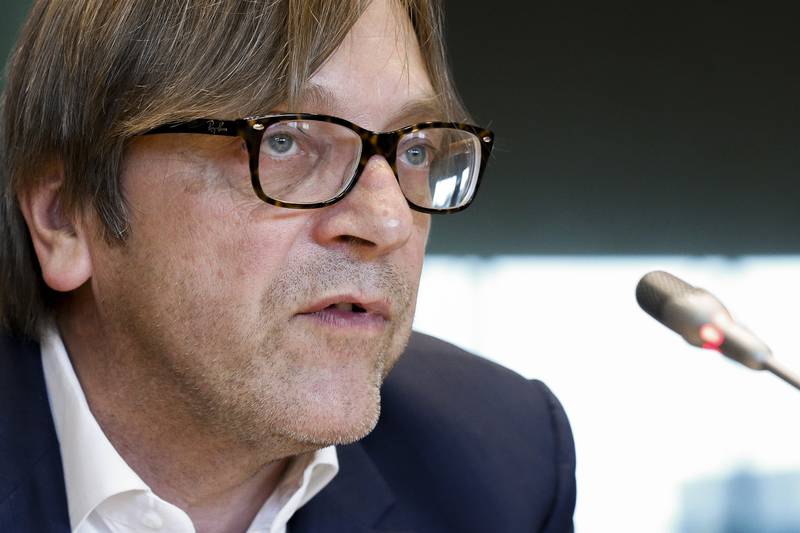 homeland, as well as failing to raise that fight at EU level, will not have the desired weight onto the enlargement process.
homeland, as well as failing to raise that fight at EU level, will not have the desired weight onto the enlargement process.
And finally, Schulz is a supporter of the tough approach. It is that type of approach that created the power the MEPs currently enjoy in the EU. It was under his initiative that the Parliament declared war to the Council on Schengen, the negotiations on the multiannual financial framework and also on the construction of the banking union. Although it has good sides, tough politics at a time when subtle diplomacy and careful consideration of every move is needed, might not be the most appropriate.
At this stage, the Socialists have big chances to become a first political force in the next European Parliament as a result of the crisis and the unconvincing policies of the right-wing parties in solving the severest economic problems. Unless he had against him a very strong candidate from the other strongest political force - the European People's Party (EPP), which still has no formal nomination. The party will decide during its congress in March, but there is a strong talk that this might be the European politics veteran Jean-Claude Juncker, who last year lost the elections in his home Luxembourg and ended the longest career of a prime minister in the EU. Juncker is highly respected all over Europe in spite of his, sometimes, criticised role as chief of the Eurogroup. Precisely during that time, however, his high political class showed up in handling crisis situations and also his vision about Europe's future.
Juncker was one of the most loved politicians by journalists in Brussels and was also a favourite of the MEPs. His huge experience at EU stage brings the necessary weight in this critical for the Union times. Juncker has a strong character, but he is also good in seeking a compromise which is the desired combination in today's tensed moments. Moreover, he has a very refined sense of humour which always freshens up the most tensed moments. Currently, he is the only one who can skillfully balance between the EU institutions and the interests of the member states. Furthermore, Juncker would have a serious weight on the enlargement process, especially after the European Commission proposed the introduction of the European Semester for the candidate countries to avoid the accession of economically very underdeveloped countries. His experience from the resolution of the eurozone crisis 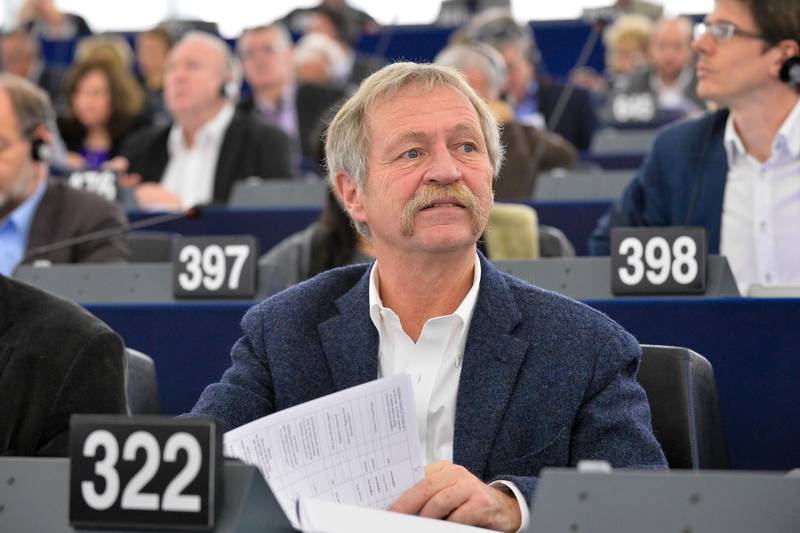 could serve him well in monitoring the economic progress of the candidate countries and especially in terms of their economic governance.
could serve him well in monitoring the economic progress of the candidate countries and especially in terms of their economic governance.
Besides, Juncker is a moderate pro-European. He sees no other solution but the EU, but his visions are realistic unlike Mr Schulz's or the third strongest candidate of the Liberals, Mr Guy Verhofstadt. Alas, Juncker's nomination is not yet confirmed, but according to influential European media, it has Angela Merkel's full support. Another advantage of Mr Juncker's is that he could be a very good balancer between big and small states being himself a representative of one of the smallest EU states. From a Bulgarian perspective, a deficiency is that he will be nominated by a party which is represented in Bulgaria by one of the failed political parties - GERB - who had a major role in distancing Bulgaria from the European system of values. The fact that Juncker has so far been close mainly to the euro area, however, keeps him clean. However, it will be very important whom the Bulgarian voters would support Juncker through - will that be GERB or through another of the EPP members like the Reformist Block or the remnants of the Blue Unity coalition. Currently, none of them is discussing this issue publicly.
Guy Verhofstadt won in a battle with his biggest inter-party rival - the very influential EU commissioner Olli Rehn. The Finnish EU commissioner stepped back to give way to Prime Minister Jyrki Katainen - one of the candidates for the EPP nomination - to avoid a collision of two Finnish candidates. This is not bad a development for Rehn - a politician with huge experience that could be wasted if he lost the contest. Which is a highly probable possibility given the fact that Liberals are not on the rise in the EU at the moment. Besides, Mr Rehn keeps his chances to participate in the next Commission, too. Mr Verhofstadt has strong federalist convictions. He, however, is too emotional for the European Commission position. A position which is rather expected to radiate stability, solidity and realism. A position which is not expected to flood with ideas, but rather to seek the best possible balance between the euro-fugal and euro-petal forces in Europe. Last but not least is also the fact that Guy Verhofstadt has a large track record of speeches but not of actions, which seriously weakens his nomination.
From a Bulgarian point of view, Mr Verhofstadt is completely unacceptable because he enjoys the support of the most controversial political formation in Bulgaria, believed to be the founder of the current severe economic and political situation - the Movement for Rights and Freedoms (DPS). The party which functions in the most non-transparent way, which is surrounded by countless unresolved mysteries and which is always at the epicentre of events. A party which is really hard to call democratic and even less a bearer of European values. This is the party which is known to be existing entirely thanks to controlled or bought vote which does not allow for additional votes to help increase the Liberals in the EP in support of Verhofstadt. This raises the question of the Belgian is ready to demonstrate rigidity in terms of the problems Bulgaria has and which can be seen in many of the former communist countries, especially and in a greater extent in the enlargement countries.
Both Martin Schulz and Guy Verhofstadt are among the most vociferous people demanding democratic legitimacy on the most important issues on the EU agenda. But both were selected in the old way by their political parties. And this would not have been in any way odd if it were not for the Greens who demonstrated how they understand democratic legitimacy, organising the first ever primaries in the EU to select the nominations for Commission president. In this way, they laid the foundations of a common European tradition which was, actually, the point in amending the EU legislation for the European political parties. In the course of several months via a series of online chats, discussions and debates, the European Greens selected two nominations - German Ska Keller and French Jose Bove. Against the backdrop of one of the other candidates - the German Rebecca Harms - Keller and Bove are not quite known at European stage, but they received a majority of votes in the primaries which legitimises them democratically.
Keller is an activist defending migration and anti-racism. She speaks six languages and is a specialist in Islamic, Turkish and Jewish studies. She won the Greens' primaries with her ambition Green policies to gain greater place in today's debate about the future of Europe. Jose Bove is mostly known for his active role in the reform of the Common Agricultural Policy. He is born in France and is a farmer. Believes that today's challenges are global and this is valid not only for climate change, but also for education, human rights and the rights of nature. Defends the establishment of transnational democracy.
Schulz, Juncker, Verhofstadt or a Green?
Martin Schulz and Guy Verhofstadt have a great advantage and it is that they are very well known on European stage and are currently occupying positions that help them campaign in a broader European terrain. Moreover, both are long known for their ambitions to become European Commission president and are in the campaign from its very beginning - September 2013. The situation with Juncker is much different, whose nomination is yet to be confirmed in the very last moment - March - while the European elections will take place between 22 and 25 of May all over the EU. This means that, although he is very well known in the EU, Juncker will have a very short period of time to campaign, especially at a large European scale. The Greens, generally, do not have great chances because their candidates are unknown and do not have sufficiently strong presence in all the member states to be able to organise a large-scale campaign. Nonetheless, their idea for primaries has put the traditional politics in the EU to a 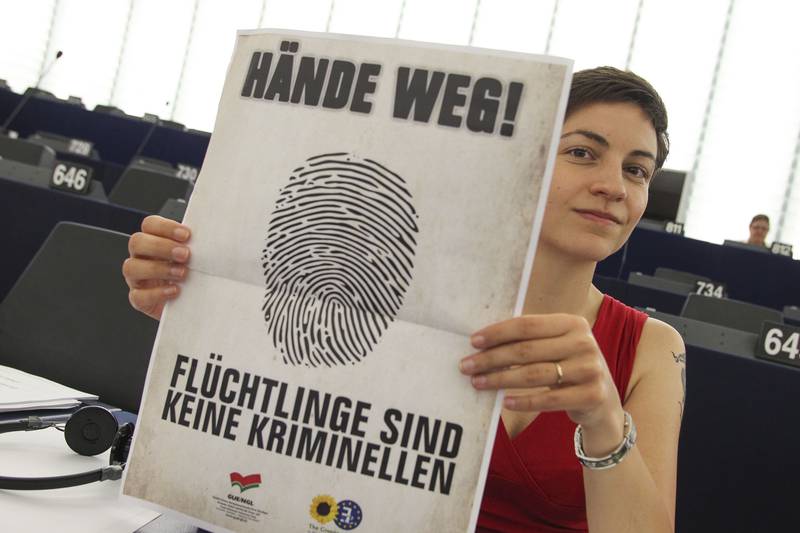 huge test and is very possible to gain a lot of supporters. In the end of the day, the more Greens in the EP the less eurosceptics and nationalists.
huge test and is very possible to gain a lot of supporters. In the end of the day, the more Greens in the EP the less eurosceptics and nationalists.
Regardless which political force will win in May, the final decision will be taken by the member states. And each will decide according to its own political realities. At the moment, the EPP governments prevail in the Council which gives the party's candidate great chances. Together with the election of a new chief, however, the member states will have to begin talking openly about the future, too, moreover with not so distant horizons like 2017, but much earlier. The tension in the EU is sufficiently high not to allow us further wandering and multiannual constitutional debates. The future European Commission chief should be very deep into the EU governance, the situation of the euro area and should have more vision rather than ambition.
Where is Bulgaria?
Against the backdrop of the already ongoing processes which are definitely not a central topic in Bulgaria, the European elections in the country will prove a very peripheral process based on domestic political infighting which will push the country further toward European isolation. Focusing on which party how many MEPs wants to send in Strasbourg is highly petty against the backdrop of the much more demanding issues like whether we would like to join the fast track of integration or wait to fall out of the process. It is also important to answer the question who will be most appropriate to head the European Commission to ensure permanent pressure for deep political reforms in Bulgaria. From this perspective, holding the European elections together with any other elections would be a significant underestimation of the importance of the European vote that will practically serve as the selection of a path.
 Federica Mogherini | © Council of the EU
Federica Mogherini | © Council of the EU | © Council of the EU
| © Council of the EU Luis De Guindos | © Council of the EU
Luis De Guindos | © Council of the EU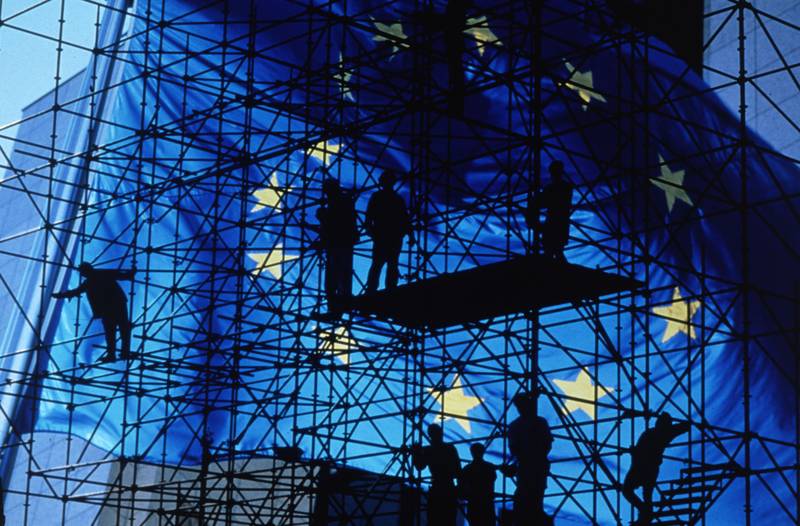 | © European Commission
| © European Commission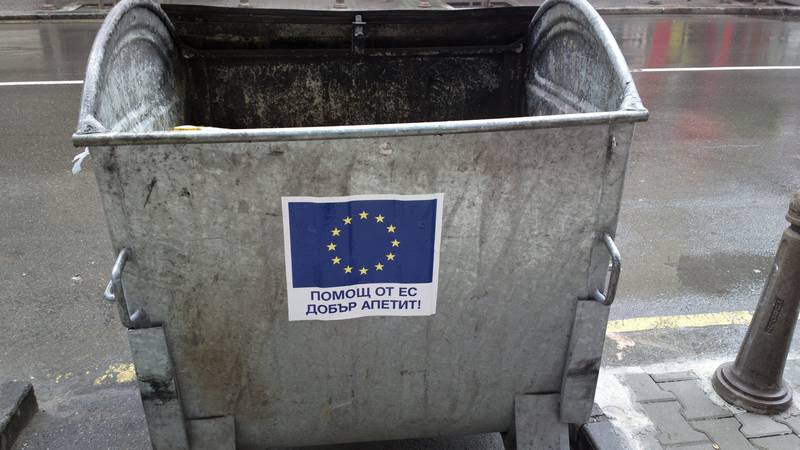 | © euinside
| © euinside Angela Merkel | © Council of EU
Angela Merkel | © Council of EU